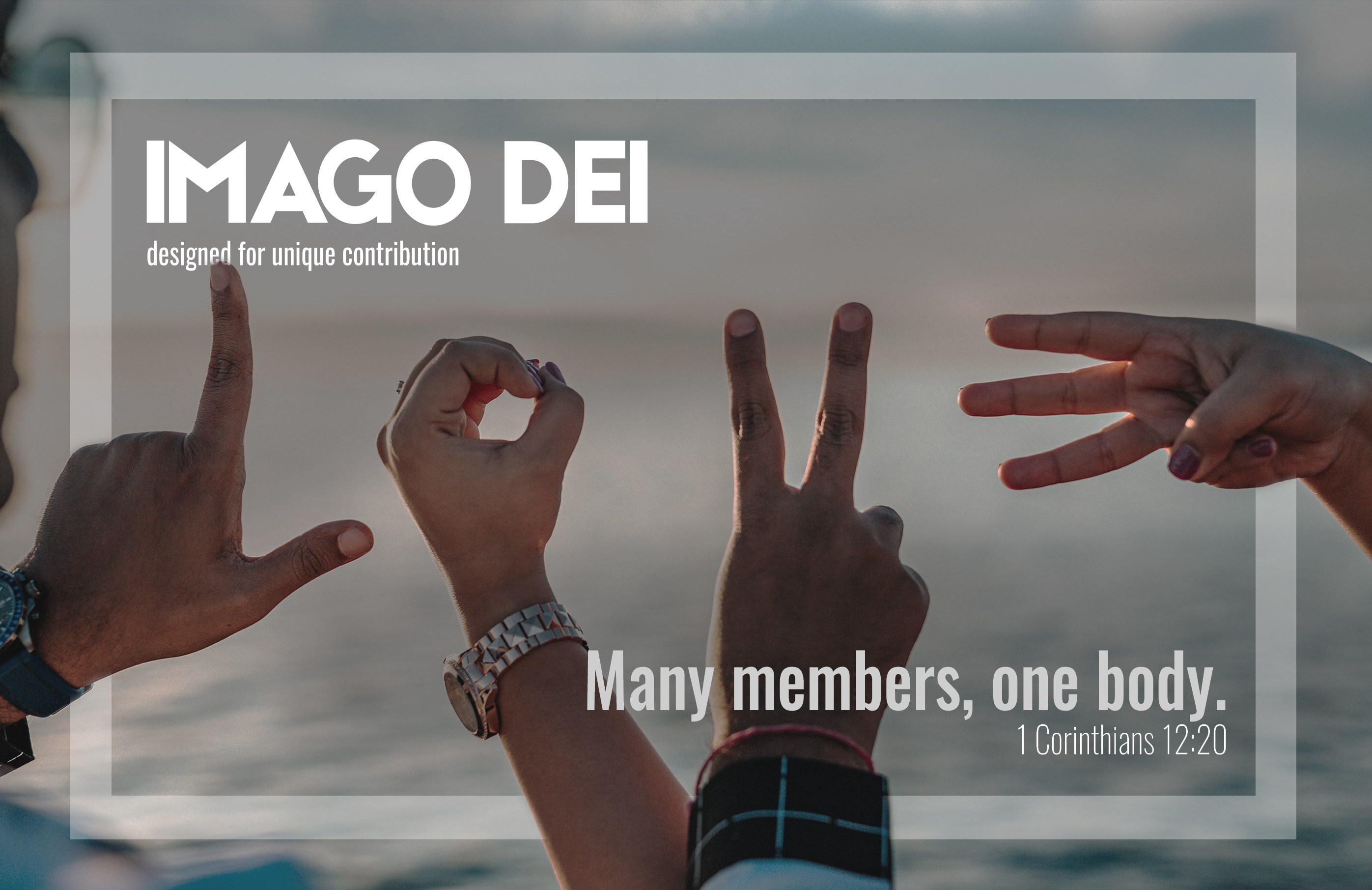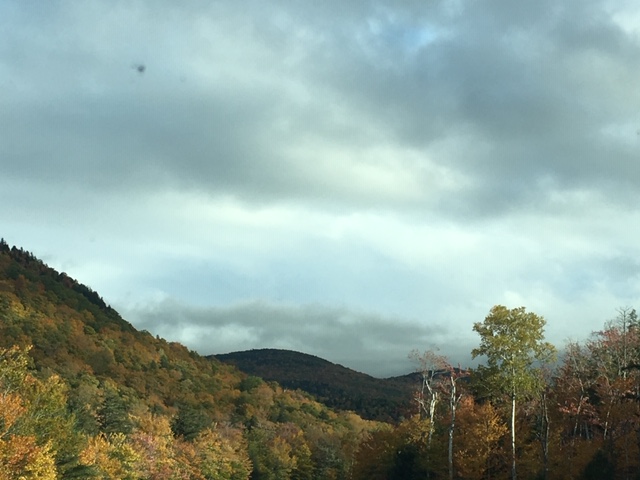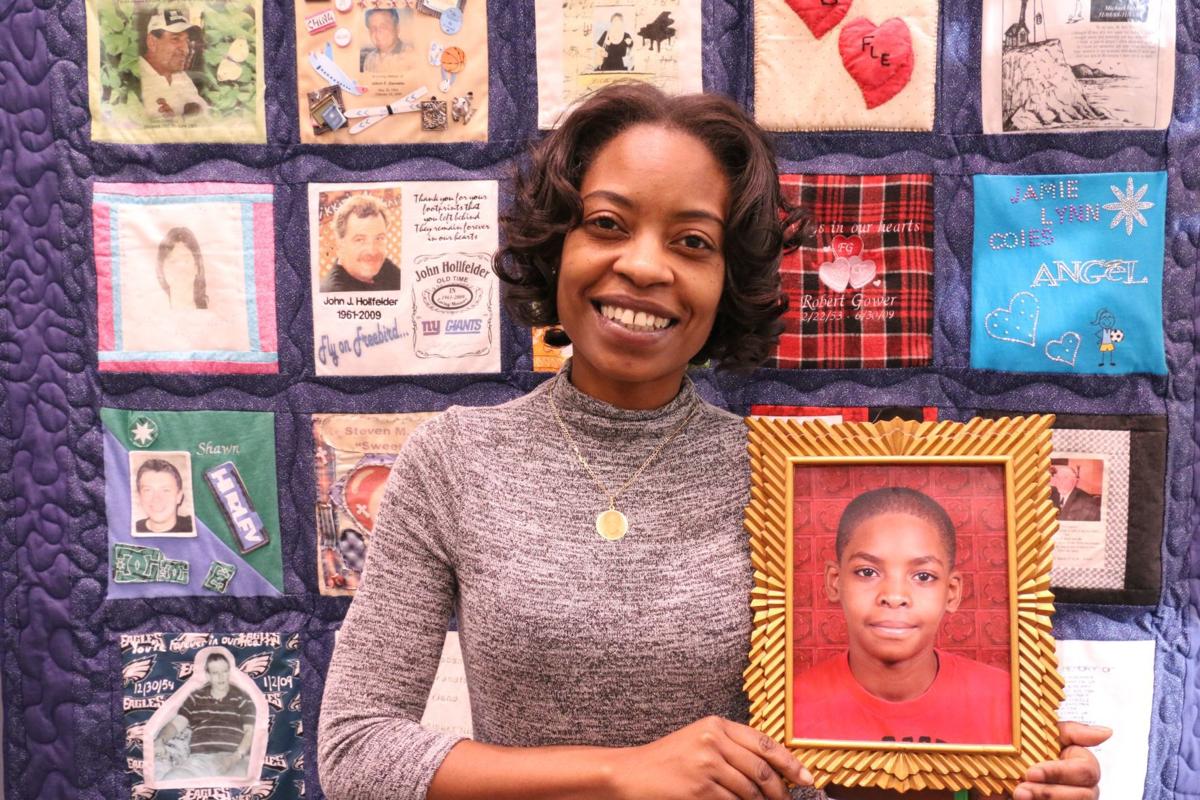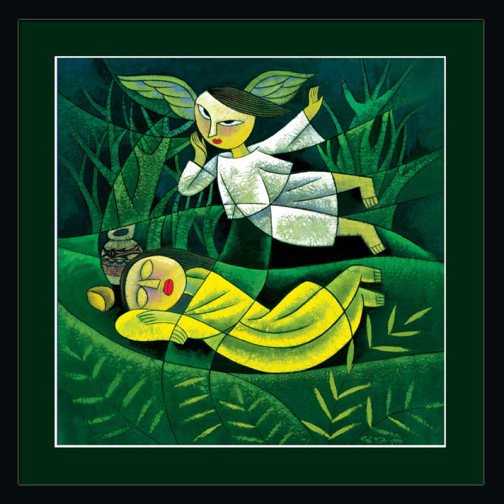Meditation on sacred bodies: loving our bodies, caring for other bodies & living in the communal body (themes from 1 Corinthians 12 and Luke 4)
Christ has no body now on earth but yours,
no hands but yours, no feet but yours,
Yours are the eyes through which to look out
Christ’s compassion to the world
Yours are the feet with which he is to go about doing good;
Yours are the hands with which he is to bless men now.
― St. Teresa of Avila
I Sing the Body Electric — Walt Whitman(1 – excerpt) …
And if the body does not do fully as much as the soul?
And if the body were not the soul, what is the soul?
… The natural, perfect, varied attitudes, the bent head, the curv’d neck and the counting; Such-like I love … (7 – excerpt)
… This is not only one man, this the father of those who shall be fathers in their turns,
In him the start of populous states and rich republics,
Of him countless immortal lives with countless
embodiments and enjoyments. How do you know who shall come from the offspring
of his offspring through the centuries? (Who might you find you have come from yourself,
if you could trace back through the centuries?) (8 – excerpt)
A woman’s body … She too is not only herself,
she is the teeming mother of mothers,
She is the bearer of them that shall grow
and be mates to the mothers.
Have you ever loved the body of a woman?
Have you ever loved the body of a man? Do you not see that these are exactly the same
to all in all nations and times all over the earth?
If any thing is sacred the human body is sacred …
Except for the Body — Mary Oliver
Except for the body of someone you love,
including all its expressions in privacy and in public,
trees, I think, are the most beautiful
forms on the earth.
Though, admittedly, if this were a contest,
the trees would come in an extremely distant second.
I Got Kin — Hafiz
Plant: so that your own heart will grow.
Love: so God will think,
“Ahhhhhh, I got kin in that body!
I should start inviting that soul
over for coffee and rolls.”
Sing: because this is a food our starving world needs.
Laugh: because that is the purest sound.
Solitude — Nancy Wood
Do not be afraid to embrace the arms of loneliness.
Do not be concerned with the thorns of solitude.
Why worry that you will miss something?
Learn to be at home with yourself without a hand to hold.
Learn to endure isolation with only the stars for friends.
Happiness comes from understanding unity.
Love arrives on the footprints of your fears.
Beauty arises from the ashes of despair.
Solitude brings the clarity of still waters.
Wisdom completes the circle of your dreams.
Our Bodies As Sacred
There comes a time when it is vitally important for your spiritual health to drop your clothes, look in the mirror, and say, ‘Here I am. This is the body-like-no-other that my life has shaped. I live here. This is my soul’s address.” — Barbara Brown Taylor
May you see in what you do the beauty of your own soul. — John O’Donohue
If you have a body, you are entitled to the full range of feelings. It comes with the package. ― Anne Lamott, Grace (Eventually)
Everything can be taken from a man but one thing: the last of the human
freedoms—to choose one’s attitude in any given set of circumstances, to
choose one’s own way. ― Viktor E. Frankl, Man’s Search for Meaning
Breath is the gift of life from the one who created us – from the God
who is both our origin and our destination … some Rabbis teach that Yahweh is not even really a word at all. It is literally breath itself. Yah – exhale. Weh – inhale. Yah – exhale. Weh – inhale. Which would make sense – since the closest translation of its [Yahweh’s] meaning is The One Who Causes to Become.
There is just something about being known by God and animated by God’s
breath in our birth and in our death that wouldn’t leave me this week as
I thought about talking to you all here in this room today … This is
the comfort I thought of this week as I bore witness to both birth and
death. That the God whose name is our very breath – who breathed the
words let there be light, who breathed into dust to create humanity, is
present when we breath our first breath and present when we breathe our
last – I believe that our final exhale is Yah – and that God completes God’s name inhaling Weh – and carries us on God’s divine breath into the heart of God from where we came to begin with. … Amen. — Nadia Bolz-Weber
All great spirituality teaches about letting go of what you don’t need
and who you are not. Then, when you can get little enough and naked
enough and poor enough, you’ll find that the little place where you
really are is ironically more than enough and is all that you need. At
that place, you will have nothing to prove to anybody and nothing to
protect. That place is called freedom. It’s the freedom of the children
of God. Such people can connect with everybody. They don’t feel the need
to eliminate anybody … ― Richard Rohr, Healing Our Violence through the Journey of Centering Prayer
Caring for Other Bodies As Sacred: Serving the Communal Body
We sit and talk,
quietly, with long lapses of silence
and I am aware of the stream
that has no language, coursing
beneath the quiet heaven of
your eyes
which has no speech.
― William Carlos Williams
Speak your mind, even if your voice shakes. — Maggie Kuhn
… I see [God] here, in the eyes of the people in this [hospital]
corridor of desperation. This is the real house of God, this is where
those who have lost God will find [God] — Khaled Hosseini, The Kite Runner
The beginning of love is to let those we love be perfectly themselves,
and not to twist them to fit our own image. Otherwise we love only the
reflection of ourselves we find in them. — Thomas Merton
You rarely have time for everything you want in this life, so you need to make choices. And hopefully your choices can come from a deep sense of who you are. — Fred Rodgers
Driven by the forces of love, the fragments of the world seek each other so that the world may come into being. — Pierre Teilhard de Chardin
We are each other’s harvest; we are each other’s business; we are each other’s magnitude and bond. — Gwendolyn Brooks
Saints cannot exist without a community, as they require, like all of
us, nurturance by a people who, while often unfaithful, preserve the
habits necessary to learn the story of God. — Stanley Hauerwas
This time, like all times, is a very good one if we but know what to do with it. — Ralph Waldo Emerson
That
day, for a moment, it almost seemed that we stood on a height, and
could see our inheritance; perhaps we could make the kingdom real,
perhaps the beloved community would not forever remain that dream one
dreamed in agony. — James Baldwin
The lack of material well-being among the poor reflects a lack of spiritual well-being among the rest. — William Sloane Coffin
God does not look at your forms and possessions but he looks at your hearts and your deeds. — Prophet Muhammad
Loving with Body & Soul, Heart & Mind: Holy Acts
Let me tell you about love, that silly word you believe is about whether
you like somebody or whether somebody likes you or whether you can put
up with somebody in order to get something or someplace you want or you
believe it has to do with how your body responds to another body like
robins or bison or maybe you believe love is how forces or nature or
luck is benign to you in particular not maiming or killing you but if so
doing it for your own good. Love is none of that. There is nothing in
nature like it. Not in robins or bison or in the banging tails of your
hunting dogs and not in blossoms or suckling foal. Love is divine only
and difficult always. If you think it is easy you are a fool. If you
think it is natural you are blind. It is a learned application without
reason or motive except that it is God. You do not deserve love
regardless of the suffering you have endured. You do not deserve love
because somebody did you wrong. You do not deserve love just because you
want it. You can only earn – by practice and careful contemplations –
the right to express it and you have to learn how to accept it. Which is
to say you have to earn God. You have to practice God. You have to
think God-carefully. And if you are a good and diligent student you may
secure the right to show love. Love is not a gift. It is a diploma. A
diploma conferring certain privileges: the privilege of expressing love
and the privilege of receiving it. How do you know you have graduated?
You don’t. What you do know is that you are human and therefore
educable, and therefore capable of learning how to learn, and therefore
interesting to God, who is interested only in Himself which is to say He
is interested only in love. Do you understand me? God is not interested
in you. He is interested in love and the bliss it brings to those who
understand and share the interest … Amen. ― Toni Morrison, Paradise
On Interdependence
When this is, that is.
From the arising of this comes the arising of that.
When this isn’t, that isn’t.
From the cessation of this comes the cessation of that.
— Buddha, Assutava Sutta, Samyutta Nikaya 12.2
Lord, make me an instrument of your peace:
where there is hatred, let me sow love; where there is injury, pardon;
where there is doubt, faith; where there is despair, hope;
where there is darkness, light; where there is sadness, joy.
O divine Master, grant that I may not so much seek
to be consoled as to console, to be understood as to understand,
to be
loved as to love. For it is in giving that we receive, it is in
pardoning that we are pardoned, and it is in dying that we are born
toeternal life. Amen. — St Francis, Prayer
Madhyamika means “middle way,” and it examines the nature of existence. Madhyamika
tells us that nothing has an intrinsic, permanent self-nature. Instead,
all phenomena — including beings, including people — are temporary
confluences of conditions that take identity as individual things from
their relationship to other things. — Barbara O’Brien, Interbeing: The Inter-existence of All Things (essay excerpt)
Clouds In Each Paper — Thich Nhat Hanh
If you are a poet, you will see clearly that there is a cloud floating
in this sheet of paper. Without a cloud, there will be no rain; without
rain, the trees cannot grow: and without trees, we cannot make paper.
The cloud is essential for the paper to exist. If the cloud is not here,
the sheet of paper cannot be here either. So we can say that the cloud
and the paper inter-are. “Interbeing” is a word that is not in the
dictionary yet, but if we combine the prefix “inter” with the verb “to
be”, we have a new verb, inter-be. Without a cloud, we cannot have
paper, so we can say that the cloud and the sheet of paper inter-are.
If we look into this sheet of paper even more deeply, we can see the
sunshine in it. If the sunshine is not there, the forest cannot grow. In
fact nothing can grow. Even we cannot grow without sunshine. And so, we
know that the sunshine is also in this sheet of paper. The paper and
the sunshine inter-are. And if we continue to look we can see the logger
who cut the tree and brought it to the mill to be transformed into
paper. And we see the wheat. We know that the logger cannot exist
without his daily bread, and therefore the wheat that became his bread
is also in this sheet of paper. And the logger’s father and mother are
in it too. When we look in this way we see that without all of these
things, this sheet of paper cannot exist.
Reflections on recognizing and using spiritual gifts and meditation on Dr Martin Luther King, Jr.
What works of wonder can we accomplish as individuals and as local [faith communities] that turn despair into hope, hatred into love, and violence into healing? Do you feel equal to the task? If not, what do you need? What unseen power lies within us that we do not recognize? What are your gifts? What gifts do you discern within your [faith community] and how is God calling you to transform the world around you?— Rev Kathryn Matthews (excerpt, UCC Sermon Seeds)
You have no idea how hard I’ve looked for a gift to bring You. Nothing seemed right. What’s the point of bringing gold to the gold mine, or water to the ocean. Everything I came up with was like taking spices to the Orient. It’s no good giving my heart and my soul because you already have these. So I’ve brought you a mirror. Look at yourself and remember me. ― Rumi
Knock, And He’ll open the door
Vanish, And He’ll make you
shine like the sun
Fall, And He’ll raise you
to the heavens
Become nothing,
And He’ll turn you into everything.
― Jalal Ad-Din Rumi
There is a kind of vegetable in Vietnam called he (pronounced “hey”). It belongs to the onion family and looks like a scallion, and it is very good in soup. The more you cut the he plants at the base, the more they grow. If you don’t cut them they won’t grow very much. But if you cut them often, right at the base of the stalk, they grow bigger and bigger. This is also true of the practice of dana [giving of self and spiritual gifts … an essential Buddhist practice]. If you give and continue to give, you become richer and richer all the time, richer in terms of happiness and well-being. This may seem strange but it is always true. — Thich Nhat Hahn, Plum Village
Recognizing and Using Our Gifts
A Recipe for Creativity (based on prompts from Sula by Toni Morrison) — Excerpt from a reflection by Alex Posen
- Start with a curious mind and an open heart
- An unbiased hunger for studying the world
- Compassionate interest in experiences beyond oneself
- Attentiveness to all the dynamics, properties, qualities and details that you encounter
- You will know if you are on the right track if you can find inspiration anywhere and in anything
- Remember that you are building an archive of observations
- Metaphoric thinking. Metaphors are the tools of translation for all that you see, hear and feel. Metaphors give us words and ideas with which to hold and define our observations
- Last but not least, learn some skills, so that you can easily use your understanding to create and express your heart’s desire.
What gifts have I received? — Adapted from commentary by Curtis Thomas:
What gifts have I received? Answer these questions:
- What can I accomplish with my present abilities?
- What type of service am I personally drawn to?
- What have I been educated or trained to do?
- What gifts do my [spiritual] leaders think that I possess?
- What does my family (who should know me best) think that my gifts are?
- What specific needs are there in the church body [faith community and larger community]?
- Have I attempted to use a gift in a certain area and have regularly failed?
- When have I met with success in attempting to exercise a gift or meet a need in the body [community]?
- Have I asked my closest friends to honestly help assess where I could most successfully serve?
So we, in our corporate wholeness, are the glory of God, the goodness of God, the presence of God. As an individual, I participate in that wholeness, and that is holiness. That’s the only holiness we’ll ever know. It’s not my private holiness; it’s our connectedness together … Many call this state of consciousness the True Self. We have to fall through the little events of our life into this True Self. We have to fall through our life situation into The One Great Life. We have to fall through our identification with our small mind into the Great Mind of Christ … (see 1 Corinthians 2:16). We have to fall through our individual body experience into the One Spirit (see Ephesians 4:4-5), through what is manifest into the Unmanifest. There are many names and descriptions for this consciousness, for example, Being itself, “the bosom of Abraham” (Luke 16:22), the Father, or if you were raised Catholic or Orthodox, the arms of Mary. We are always and only grabbing for images and metaphors, but the important thing is the experience of union itself. — Richard Rohr
Gifts of the Spirit
… we don’t find our gift through self-examination and introspection and then find ways to express it. Instead, we love one another, serve one another, help one another, and in so doing we see how God has equipped us to do so. ― Russell D. Moore
We must approach our meditation realizing that ‘grace,’ ‘mercy,’ and ‘faith’ are not permanent inalienable possessions which we gain by our efforts and retain as though by right, provided that we behave ourselves. They are constantly renewed gifts. The life of grace in our hearts is renewed from moment to moment, directly and personally by God in his love for us. ― Thomas Merton
God never loses sight of the treasure which He has placed in our earthen vessels. ― Charles Haddon Spurgeon
There is no greater gift than realizing the constant presence of the Divine and His Absolute Power to create and restore all things. ― Marta Mrotek
The only thing that will work is Spirit, the universal donor. It was all going to be an inside job…It was recognizing my truth, the truth of who I am. Not who I am, but whose I am.— Anne Lamott
There are spiritual gifts like mercy, faith, or generosity that enable people to set the standard, so to speak. But just because you don’t have that spiritual gift doesn’t mean you aren’t held to any standard at all. Even if you aren’t gifted in that way, you’re still called to live mercifully, faithfully, and generously. You might not set the standard, but you need to meet the standard. There is a baseline that all of us are called to. When the opportunity presents itself, we need to show mercy, exercise faith, and give generously. ― Mark Batterson
Deep in our bones lies an intuition that we arrive here carrying a bundle of gifts to offer to the community. Over time, these gifts are meant to be seen, developed, and called into the village at times of need. To feel valued for the gifts with which we are born affirms our worth and dignity. In a sense, it is a form of spiritual employment – simply being who we are confirms our place in the village. That is one of the fundamental understanding about gifts: we can only offer them by being ourselves fully. Gifts are a consequence of authenticity; when we are being true to our natures, the gifts can emerge. ― Francis Weller
Nowhere in Scripture do we have the slightest hint that God’s people are to volunteer. Rather, the Scriptures indicate that the use of our gifts should be considered a joyful responsibility. — Curtis Thomas
Gifts for the common good (excerpt) — Rev Kathryn Matthews
… Dr. Martin Luther King, Jr … is a hero, an icon, really, a name that comes to mind when someone asks, “Does God still send us prophets?” His martyrdom only strengthens our confidence that this indeed was a man sent from God, showered with gifts, who will be remembered for his eloquent words, his courageous deeds, and his deep and abiding commitment to non-violence as the ultimate form of Christian resistance to injustice.
Dr. King was faithful to the ideal, the commitment to non-violent resistance … even in the face of police dogs with snarling teeth and the taunts of “nice, Christian” Americans … who reacted angrily and self-righteously when a people demanded justice too long delayed. Justice too long delayed, Dr. King said, is justice denied.
Renewing our own commitment
Still, as each year goes by and we remember Dr. King with our programs and sermons and singing and even our renewed commitment to justice for all of God’s children, it seems to me that it’s rather tempting to lift up this prophet, high above us, and make him so singular or special that we miss the whole point. I see the timing of Dr. King’s birthday and our communal observance as very fortunate: what better way to begin a new year that to renew our own commitment to the vision of Jesus, who practiced compassion and justice throughout his life? …
Everyday works of wonder
I want to believe that Dr. King, while he was a great and gifted man, a prophet even, did things that we can do, too, with the gifts that God has given us. I do believe that there are everyday gifted people who are responding to human need, using the gifts God has given them — because everything we have, Paul says earlier in his letter, is something we have received—using those gifts to meet human need, to work for a better and more beautiful and more just world, to speak for those who have no voice or, better, to make sure the voiceless are heard, to stand with those who are stepped on and pushed out, to walk with those who are making their way to a better day.
Works of wonder, yes, and yet I cannot emphasize enough how ordinary and everyday these efforts are. Whether we are called to offer up our lives for the gospel, or to live that gospel day in or day out, year in and year out, in everyday acts of compassion and justice, we are using those abundant gifts, just as God intended, and on God’s own timetable, for the building up of the reign of God.
Reflections on being heard & listening: themes from Hebrews
Here are Rev Barbara Brown Taylor’s thoughts on the Love who insists one being Present and bears Witness to our lives:
“I use the word “sacred” to describe something that grounds me in this world and opens me up to another world all at the same time. Oceans usually do it, especially in the middle of summer storms. The kindness of strangers does it. Getting sick does it, especially if I am so sick that I cannot do anything for myself. Being present at the birth of a new human being does it, and so does being between the sheets with someone I love. I could go on. I use the words “holy” and “divine” to describe the same phenomena. They almost involve the sense that there is a Witness to my life, a Consciousness that is for me in the best situations but also in the worst, where this Sacredness is working around the clock to make life out of death for me and every other living thing.”
heard the text that Nature renders.
We had reached the naked soul of man.
— Ernest Shackleton
I know that when I pray, something wonderful happens.
Not just to the person or persons for whom I’m praying,
but also something wonderful happens to me.
I’m grateful that I’m heard.
— Maya Angelou
The minute I heard my first love story,
I started looking for you, not knowing how blind that was.
Lovers don’t finally meet somewhere.
They’re in each other all along.
― Mawlana Jalal-al-Din Rumi, The Illuminated Rumi
Continue reading “Reflections on being heard & listening: themes from Hebrews”
Reflections on action & service: advocating and helping others and ourselves. Themes from Jame 2 and Matthew 7.
The best way to find yourself is to lose yourself in the service of others. — Gandhi
Have you ever experienced a “work of mercy” (“good deeds for the benefit of the neighbor”) to be a two-way street? — Tanya Barnett
Prayer
Lord make me an instrument of your peace
Where there is hatred let me sow love
Where there is injury, pardon
Where there is doubt, faith
Where there is despair, hope
Where there is darkness, light
And where there is sadness, joy
O divine master grant that I may
not so much seek to be consoled as to console
to be understood as to understand
To be loved as to love
For it is in giving that we receive
it is in pardoning that we are pardoned
And it’s in dying that we are born to eternal life
— St Francis of Assisi
The Good You Do: Taking Action
It is not enough to be compassionate: you must act. — The Dalai Lama
Continue reading “Reflections on action & service: advocating and helping others and ourselves. Themes from Jame 2 and Matthew 7.”
Reflections on mountain, wind, fire, quake and silence: themes from 1 Kings.
Holiness, not in the fire, wind or quake, but in the silence that comes after: It is about sweeping in when we are too comfortable and moving us out of those places we cling to when we fear the unknowns and try to avoid the pain and injustice around us. It is about empowering us to do the things that so many others – and even sometimes our own systems – have told us we cannot do because of our gender, age, or economic situation, our education status, color of skin, or sexual orientation. It is about equipping ALL of us to be prophets by speaking truth, spreading love, and fighting for justice and equality for all of God’s children. — Nadia Bolz-Weber
Song: The Climb performed by Miley Cyrus (video link)
Zazen on Ching-t’ing Mountain
— Li Po, Translated by Sam Hamill
The birds have vanished down the sky.
Now the last cloud drains away.
We sit together, the mountain and me,
until only the mountain remains.
To me a mountain is a buddha. think of the patience, hundreds of thousands of years just sittin there bein perfectly perfectly silent and like praying for all living creatures in that silence and just waitin for us to stop all our frettin and foolin. ― Jack Kerouac
Continue reading “Reflections on mountain, wind, fire, quake and silence: themes from 1 Kings.”




